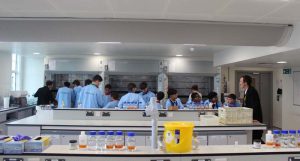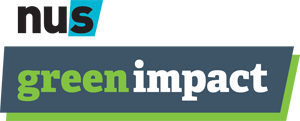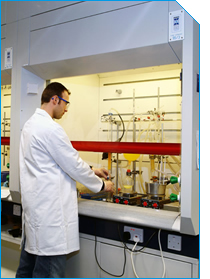This guest blog post was written by Greg Anderson – Associate Director of Research Infrastructure in the Research Management & Innovation Directorate at King’s College London.
It’s an uncomfortable truth that our lab-based research activity uses a lot of energy and so, unavoidably contributes to climate change. I think the societal impact of our research more than justifies this, but I suspect our community of researchers would agree to using less energy if we can.
In this vein, if you work in the Health Schools, there is a strong possibility that you can help us do exactly that in a very meaningful way. Ultra Low Temperature (ULT) or -80C freezers – whatever you call them – those Goliaths that sit purring in the corner and hurt our fingers each time we go in them, are one of the most important pieces of equipment we have in our labs. They keep our valuable samples safe and ensure the data we extract from them is reliable – hence the panic when they go silent or despair when you find one sitting in a puddle of its own making. They’re also one of the most energy-hungry pieces of equipment. Each one uses about the same amount of energy as the average 3-bedroom home, and many of the older models can use twice that amount. Not only do they draw a lot of power directly, but they also require a similar amount of energy to cool the space they occupy because they throw out so much heat to function. For the record – across our campuses at King’s we have over 550 of them!
As a user of these freezers, you may be aware that some contain – let’s call it – stuff, that is perhaps less valuable than the rest of it. Maybe you know what I mean!? That box of unlabelled Eppendorf tubes left in there 6 years ago; that bag of 50ml Falcon tubes with unidentifiable bits of tissue in; dare I say it – the samples that your soon-to-retire group leader still has in there from their PhD days. What we would love your help with, as things wind down for Christmas, is to grab a coffee with your group leader and nail down what contents can go! Perhaps muster support from colleagues, don some grotesque Christmas jumpers for extra thermal protection and Maria Kondo your ULT freezers together! Even better, organise the contents and make accurate records of the samples that need keeping so that they’re easy to find.
Now on its own, this is not going to solve anything; in fact, the more space you have in your freezer, the more air that can rush in and warm up your samples each time you open the door. This request is ultimately about consolidating the samples we keep and to make this work we need you to combine your efforts across research departments, and likely your local technical team, to have the greatest impact. The technical leads in your areas are already working hard to consolidate samples and may be able to help with shared space allocation between research groups in individual freezers. Which in turn means your teams can take advantage of a King’s wide freezer replacement scheme.
King’s has initiated a £1M scheme that offers departments the opportunity to trade in any two ULT freezers that are older than 10 years old and in exchange, receive a brand new, fully racked (to your specifications) market-leading, ultra-efficient model (CryoCube F570h). So, this is your chance to help get rid of those freezers in your department that no one wants to put their samples in because they’re on their last legs (and are coincidentally the most energy inefficient). Each freezer taken away either goes to UniGreen Scheme for resale, or SLS to be dismantled for useful parts or sustainably disposed of. The fate of every freezer is tracked as part of this project so that we can be confident that no wastage occurs.
How will this make a difference? If we can collectively reduce the contents of our ULT freezers by just 10%, we can remove 50 of our least energy-efficient freezers across King’s and replace them with 25 ultra-efficient new ones, saving over 273,750 kilowatt-hours over the course of a year — enough energy to power more than 83 average UK homes. That’s a lot of energy and valuable space saved!
If you want to find out more about the scheme and the wider aims of the project, please visit our SharePoint site, where you will also find tips and tricks on how to optimise sample density.


 each year for an award promoting an environment of commitment to sustainability.
each year for an award promoting an environment of commitment to sustainability. Fume Cupboard Management Policy
Fume Cupboard Management Policy among other institutions such as UCL who have been very successful with the system
among other institutions such as UCL who have been very successful with the system
